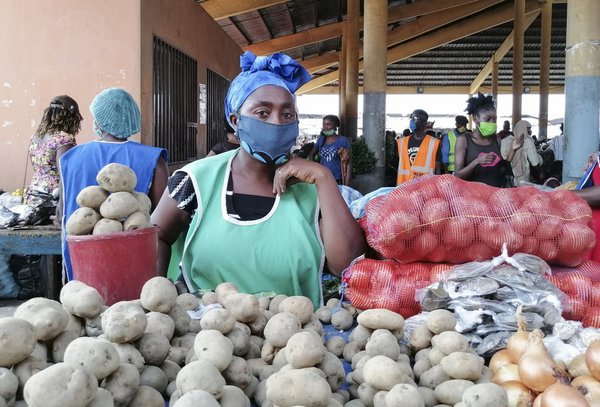 Read this article in French
Read this article in French- Share this article
- Subscribe to our newsletter
COVID-19 pandemic is accelerating in Africa
More than 200 000 COVID-19 cases have been confirmed on the African continent so far, with over 5 600 deaths, the World Health Organization (WHO) reported on 11 June 2020. The pandemic is accelerating – it took 98 days to reach 100 000 cases and only 19 days to move to 200 000 cases, WHO warns.
Ten out of 54 countries are currently driving the rise in numbers, accounting for nearly 80 per cent of all the cases. More than 70 per cent of the deaths are taking place in only five countries: Algeria, Egypt, Nigeria, South Africa and Sudan.
South Africa is the most affected, accounting for 25 per cent of the continent’s total cases, with the Western Cape and Eastern Cape provinces reporting high number of cases and deaths daily.
More than half of the countries in the continent are experiencing COVID-19 community transmission. In many cases this is concentrated in capital cities, but cases are spreading into the provinces.
Numerous countries were quick to make difficult decisions and put in place lockdowns and key public-health measures such as promoting physical distancing, good hand hygiene and testing, tracing of contacts of people with COVID-19 and isolation of cases.
With the support of WHO and other partners, governments also rapidly started to scale-up health workforce and laboratory capacities, and to set-up points-of-entry screening at airports and border crossings. These public-health and social measures have been effective in slowing the spread of COVID-19 in Africa.
In recent weeks, countries began relaxing lockdowns to resume some economic and social activities. The shutdowns have come at considerable socioeconomic cost.
Easing restrictions should be a controlled process and coupled with ensuring that widespread testing capacities and mechanisms are in place, WHO urges. Such steps need to be constantly adapted according to the trends in the data and maintained until the pandemic is contained or there is a vaccine or treatment for COVID-19 which is accessible to everyone.
As countries ease restrictions, health authorities have to ensure continuity of essential health care services while also resuming the full gamut of routine health services.
(WHO/ile)
Read more at website of the WHO Regional Office for Africa





Add a comment
Be the First to Comment